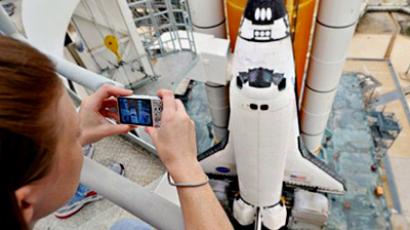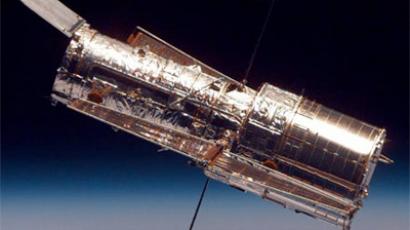“Risk-taking is important in this golden age of astronomy”
As the imminent end of the Space Shuttle program is about to set a landmark for space exploration, RT talks to astronomer Robert Williams, one of those behind the Hubble Space Telescope, who says his field of science is experiencing its golden age.
At the Starmus Festival in Tenerife, Spain, the former director of Hubble’s operating center spoke about the public image of the space observatory, the importance of taking risks in science and his high hopes for astronomy despite financial cuts.“We’re going through difficult times in the past few years, but when I talk about the golden age of astronomy, I talk about the space missions that we had in the past 15 years, and the large ground-based observatories, the new technological developments that have enabled us to do things – like adaptive optics, supercomputers – that have really advanced out understanding of astronomy. If you look at the fundamental discoveries that have been made about pulsars, quasars, the existence of planets around other stars in the past 15 years, there’s been an explosion of knowledge,” he explained his idea.More importantly, the quick advancement is known not only to academia, but also to the general community, and Hubble Telescope’s part in this is hard to not be noticed, Williams believes.“Schoolchildren tend to be fascinated by certain things. They are fascinated by dinosaurs. For 50 years now if you would go to a typical classroom in the United States and look at posters on the wall, you would see pictures of dinosaurs. For the first time last year pictures from Hubble Space Telescope occurred more often than dinosaurs on the walls of the classrooms of America. That is quite an accomplishment,” he joked.Speaking more seriously, he added that the public’s high opinion of the Hubble’s work actually helped the telescope not to be scrapped at one point.“We’ve had servicing missions to the Hubble, five of them actually. And the last one – there was a lot of questioning, because the economy was having problems whether or not it should go ahead. There were some committees that actually recommended against the final servicing of Hubble. In fact it was the American public that insisted that Hubble should be serviced so that it could continue sending pictures for another five to ten years. So the public helped save, or extend, the lifetime of Hubble,” he said.Among the things Williams is known for is the Hubble Deep Field experiment. He used his allocation of the telescope’s time to image a small uninteresting portion of the sky for ten consecutive days in the hope of getting pictures of distant galaxies. Many expected the observation to yield no meaningful results, but it turned out to be a great success, with Hubble managing to pick up light from some of the universe’s youngest galaxies.The experiment was taken at a tense moment in Hubble’s life, when it was important to bring results after a long period of drawbacks. Williams says there is a moral to the story.“It’s much easier to come up with results when you don’t take risks, when you’re doing something you know is likely to give you a positive result. But of course great discoveries are those which are completely unexpected, and which therefore you are unable to anticipate. I believe that for the progress of science it is essential that there be risk-takers. And I think it is important for the people in the political world who fund expensive scientific projects to realize that that it is important for the march of science, for the march of human knowledge that a certain amount of risk-taking be undertaken,” he said.














